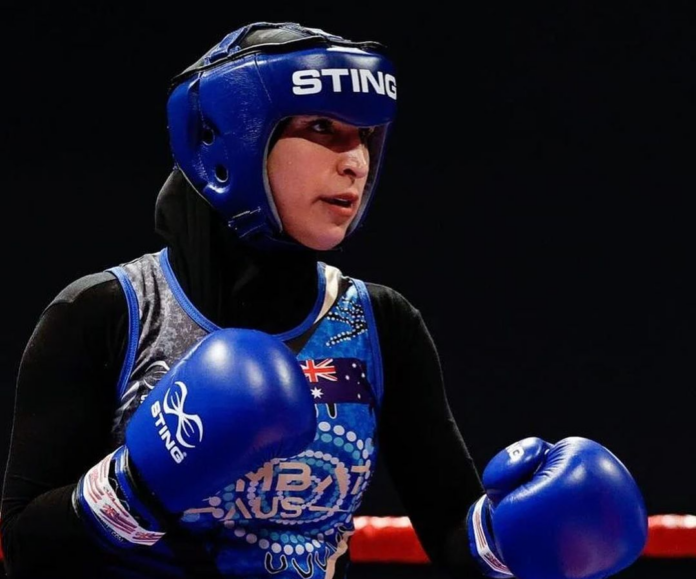Australian boxer Tina Rahimi has released a statement opposing France’s ban on the hijab for French athletes at the 2024 Paris Olympics.
Her comments come after French sprinter Sounkamba Sylla, who is a competitor in the 4×400 meters relay, was banned from taking part in the opening ceremony on Friday with her hijab on.
“Women have the right to choose how they want to dress. With or without (the) hijab. I choose to wear the hijab as part of my religion, and I am proud to do so,” 28-year-old Rahimi wrote on her Instagram account.
“You shouldn’t have to choose between your beliefs/religion or your sport. This is what the French athletes are forced to do. (The hijab ban only affects French athletes). No matter how you look or dress, what your ethnicity is or what religion you follow, we all come together to achieve that one dream: to compete and to win. No one should be excluded. Discrimination is not welcome in sport, specifically in the Olympics and what it stands for.”
Rahimi is Australia’s first Muslim boxer to compete in the Olympic Games and will make her debut on Friday in the women’s featherweight division.
She won bronze for Australia at the 2022 Commonwealth Games in Birmingham, and is the reigning Pacific Games champion.
Following a backlash from some athletes and social media users, French Sports Minister Amelie Oudea-Castera allowed Sounkamba Sylla to participate in the opening ceremony by wearing a cap to cover her hair.
Subscribe to our newsletter and stay updated on the latest news and updates from around the Muslim world!
France’s hijab ban only applies to French athletes competing at the Games – it does not apply to visiting competitors.
In June, a coalition of groups including Human Rights Watch and Amnesty International wrote to the International Olympic Committee condemning the ban and urging IOC intervention.
“The bans imposed by the French sports authorities are discriminatory and prevent Muslim athletes who decide to wear the hijab from exercising their human right to play sport without discrimination of any kind,” the letter said.
“The bans also fly in the face of the human rights requirements for host countries and the IOC Strategic Framework on Human Rights, as well as being antithetical to the fundamental principles of Olympism.”
France has a long history of seeking to regulate or ban the wearing of religious items – especially Islamic symbolism – in the name of laïcité (secularism).























